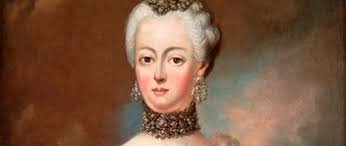Who are the most influential female leaders in history—and how did they leave their mark on the world? While history often highlights male rulers and warriors, there are countless women whose leadership changed the course of entire nations. From Africa to East Asia and the Arab world, these women defied the norms of their time and shaped our present.
Here are 10 famous female leaders in history—visionaries, warriors, and queens—whose legacies still inspire.
Table of Contents
1. Fatima al-Fihri (c. 800–880 CE) – The Founder of the First University
A visionary from Tunisia who migrated to Fez, Morocco, Fatima al-Fihri established the University of al-Qarawiyyin in 859 CE. It is recognized by UNESCO and the Guinness World Records as the oldest continuously operating university in the world.
Key Accomplishments:
- Founded the first degree-granting university.
- Promoted knowledge in theology, law, mathematics, and astronomy.
- Left a legacy of education still celebrated today.
2. Cleopatra VII (69–30 BCE) – The Last Pharaoh of Egypt
The legendary queen of Egypt, Cleopatra VII, was a skilled diplomat, strategist, and linguist. Her political alliances with Julius Caesar and Mark Antony were designed to protect Egypt’s independence.
Key Accomplishments:
- Maintained Egypt’s autonomy in a Roman-dominated world.
- Strengthened Egypt’s economy and trade.
- Became an enduring icon of leadership and intellect.
3. Joan of Arc (1412–1431) – The Heroine of France
Joan of Arc, a French peasant girl turned military leader, claimed divine guidance and led France to pivotal victories in the Hundred Years’ War. Captured and executed at just 19, she was later canonized as a saint.
Key Accomplishments:
- Led the French army at age 17.
- Inspired national unity and pride.
- Became a Catholic saint and feminist symbol.
4. Queen Seondeok of Silla (r. 632–647 CE) – Korea’s First Reigning Queen
One of Korea’s most revered rulers, Queen Seondeok of the Silla dynasty led during a time of political upheaval and cultural development. Despite opposition to female leadership, she held power with grace and intelligence.
Key Accomplishments:
- Constructed Cheomseongdae, East Asia’s oldest observatory.
- Fostered Buddhism and education.
- Stabilized Silla and paved the way for future female leaders.
5. Tomoe Gozen (c. 1157–1247) – The Samurai Warrior of Japan
A rare female samurai, Tomoe Gozen fought in the Genpei War and was known for her exceptional martial skills. Her legend survives in Japanese literature and folklore.
Key Accomplishments:
- Fought alongside male warriors as a general.
- Became one of the few recognized onna-bugeisha (female warriors).
- Symbol of courage and loyalty in Japanese history.
6. Hatshepsut (c. 1507–1458 BCE) – The Female Pharaoh of Egypt
Hatshepsut ruled Egypt for over two decades, one of the longest reigns for any female pharaoh. She wore the traditional regalia of male kings and led a prosperous and peaceful era.
Key Accomplishments:
- Reopened trade routes, especially to Punt.
- Built monumental temples and infrastructure.
- Proved that female rule could mean stability and success.
7. Harriet Tubman (c. 1822–1913) – The Freedom Conductor
Born into slavery, Harriet Tubman escaped and risked her life repeatedly to free others through the Underground Railroad. She later served as a scout and spy for the Union Army during the Civil War.
Key Accomplishments:
- Rescued over 70 enslaved people.
- Advocated for women’s suffrage and civil rights.
- Remains a powerful symbol of bravery and justice.
8. Nzinga of Ndongo and Matamba (c. 1583–1663) – Queen of Resistance
Queen Nzinga of Angola is celebrated for her resistance against Portuguese colonizers. She used clever diplomacy, military tactics, and even religious conversion to secure her people’s freedom.
Key Accomplishments:
- Defended her kingdom for over 30 years.
- Protected African sovereignty during peak European expansion.
- Revered as a national heroine in Angola.
9. Rani Lakshmibai (1828–1858) – The Warrior Queen of India
Known as the Queen of Jhansi, Rani Lakshmibai led her troops during the Indian Rebellion of 1857. She dressed as a man and fought fiercely against the British before dying on the battlefield.
Key Accomplishments:
- One of the first female freedom fighters in Indian history.
- Inspired later Indian independence movements.
- Honored as a symbol of valor and resistance.
10. Kösem Sultan (c. 1589–1651) – The Powerful Regent of the Ottoman Empire
Kösem Sultan, originally a Greek slave, rose to become one of the most influential women in Ottoman history. As the wife, mother, and grandmother of sultans, she ruled behind the scenes during the Sultanate of Women era.
Key Accomplishments:
- Acted as regent for two minor sultans.
- Exercised enormous political power for over 30 years.
- Founded charitable institutions and influenced Ottoman foreign policy.
Final Thoughts
From Fatima al-Fihri’s intellectual legacy to Kösem Sultan’s political genius, these famous female leaders in history have shown that leadership knows no gender. Their lives continue to inspire generations of women around the world to lead, learn, and rise.





